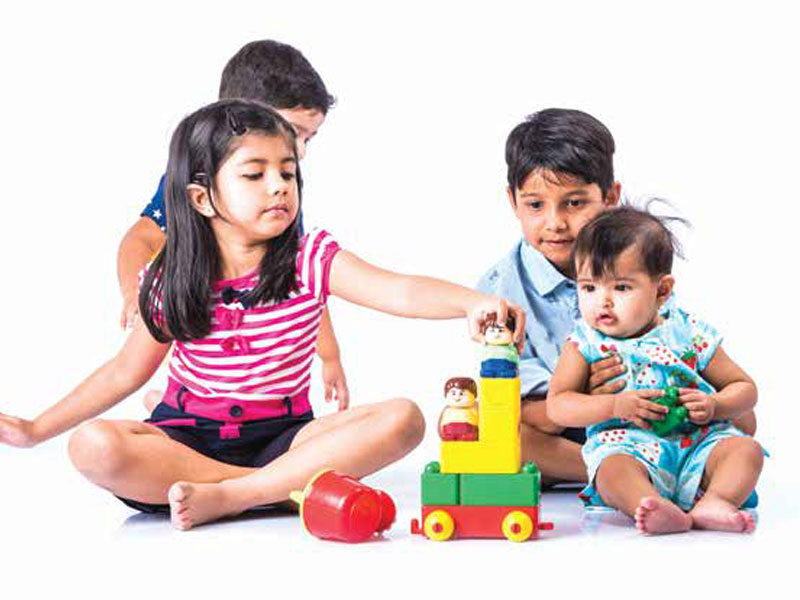A growing number of child psychologists are recommending parents to use the lockdown as an opportunity to teach and encourage toddlers to play independently – Archana N. and Mini P.
 With the Covid-19 pandemic restricting free movement and social interaction including play dates and outdoor group activities, parenting children especially toddlers, is becoming increasingly difficult and stressful, especially for parents working from home. That’s why a growing number of child psychologists and parenting experts are recommending parents use the lockdown as an opportunity to teach and encourage toddlers to play independently.
With the Covid-19 pandemic restricting free movement and social interaction including play dates and outdoor group activities, parenting children especially toddlers, is becoming increasingly difficult and stressful, especially for parents working from home. That’s why a growing number of child psychologists and parenting experts are recommending parents use the lockdown as an opportunity to teach and encourage toddlers to play independently.
“Youngest children are naturally curious and actively involved in their own learning through discovery and exploration. Encouraging independent play stimulates self-learning which is important for orderly early childhood development. Bereft of obliging and helpful adults providing instruction, children learn to experiment and ideate solutions. Independent play teaches children to become selfreliant, creative, imaginative, and improves their focus and critical thinking capabilities,” says Dr. Guru Prasanna
Lakshmi Immadi, clinical psychologist and managing director, Cognizance Institute of Mental Health and Neuro Sciences (CIMHANS), Hyderabad
Dr. Immadi shares some tips for parents for encouraging infants to play independently
- One-on-one time Prior to an independent play session, ensure you spend quality one-on-one time with your child to make her feel content and secure.
- Encourage your child to initiate play Encourage her to select her preferred toys and games for play. Initially join her in the play activity. Spending these initial moments together doing an enjoyable activity (‘connected play’) will encourage her to get involved in the activity for a longer time period.
- Don’t interrupt! Once the child gets busy with play, avoid offering comments and instructions. Stay out of the way but be observant and available. Children tend to be more creative when an adult isn’t directing play. Independent play is meditative for children.
- Provide positive inputs When your child begins playing on her own, respond by expressing appreciation and admiration. This will boost her confidence and foster independence. Also encourage her to do an activity in different ways to boost explorative skills. Always show genuine interest and appreciation when an activity is completed.
- Free play During play activity, don’t insist on the child keeping her environment tidy. Once the play session is over, guide her to put away her toys in designated places. Help your child tidy up whenever possible.
- Open-ended toys and activities Provide open-ended toys such as building blocks, peg dolls, play dough, etc. Open-ended toys don’t prescribe set outcomes and stimulate creativity and inventiveness.
5 independent play ideas
- Tactile play — with paint, sand, clay, or water — can keep children engaged for a long time.
- Easy-to-make puzzles
- Color sorting
- Sensory bag
- ‘Strewing’ — a popular concept in “unschooling” — encourages children’s interests to drive learning. In strewing, adults strew a few toys around for the child to “stumble” upon, discover, explore and self learn.
























